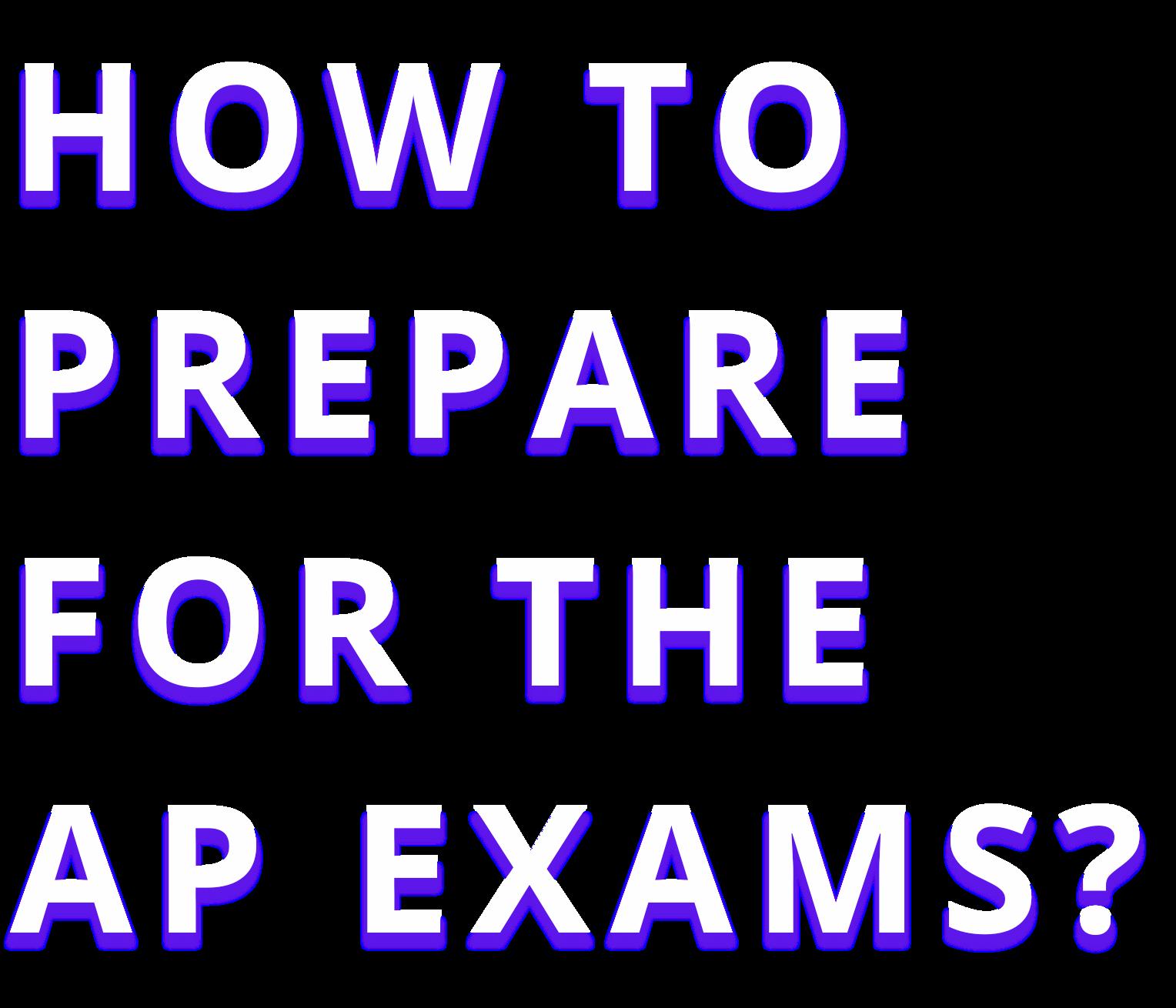














High school students frequently worry about performing well on (AP) Advanced Placement tests. Unlike regular courses, APs provide students with a wide range of topics and difficulties, enhancing their academic knowledge and building a better grasp of their particular areas of interest.
AP curriculum is meant to prepare students for a standardised test prepared by CollegeBoard each spring to demonstrate a student's knowledge of college-level courses. The standardisation assures that any AP test passee can keep up with the rigours of higher education!


AP examinations, given in May, combine collegelevel multiple choice & free answer questions. They are graded on a scale of 1 to 5, with 3 deemed passing. Harvard, for example, only gives credit for just a 5, the best possible score. Students who attempt and pass sufficient AP exams may even be able to complete college in three years, conserving both money and time.

Students may have breezed through their high school studies with little effort and only a few cram sessions Students may have relied just on their intelligence & avoided studying entirely. This won't work for AP classes. Don't learn the difficult way believe us on this.
Strong study habits are essential to ace any AP class and get a high exam score. Reviewing the class notes at least 2 times a week is good practice. If working with others excites them, they might wish to create a research team with other learners in the class

Although AP classes and examinations are difficult, several tools can be beneficial. AP course content is supported by instructors, websites, exam prep books, and sometimes even apps.


Another excellent resource is the course textbook, and it is critical that students complete all the given readings. Remember that every lesson, assignment, reading, & test in any AP class is meant to help to prepare for the AP exam, so make the most of these learning opportunities and resources.
In the AP class, students must take notes daily It will be beneficial for complex tasks and in class assessments.
Underline, highlight, or place an asterisk next to crucial points and everything the teacher underlined as vital while reviewing the notes. It's good to convert these essential ideas to index cards after the week. We may apply the same approach to the vocabulary terms we learn in class.

Considering all of the latest changes to the university admission process, most notably the transition to test-optional policies, students from all over the world are seeking methods to raise their profile and stand out to admissions officials in the absence of standardized test scores. The Advanced Placement (AP) program is among the most popular alternatives.
The College Board, the organization that administers its SAT college admission tests, said in January (2021) that the optional SAT Essay and SAT Subject Tests will be phased off of their standardized testing platforms by the end of the summer of 2021.
AP examinations are now acknowledged and pushed as a viable substitute for SAT Subject Tests. Indeed, CollegeBoard CEO David Coleman stated, "AP provides a much richer and more flexible way for students to distinguish themselves. We’ve continued to enrich and expand access to AP courses, which let students showcase their skills through challenging coursework".


AP (Advanced Placement) courses are college level courses that are offered as high school courses that are standardised and overseen by CollegeBoard. Students may obtain college credit for such courses based on their exam results according to their academic rigour.



Whereas many programs give Honours classes in combination with their regular curriculum, APs are becoming more popular due to the possibility of high test results. Courses, like Honors, last the whole academic year and contribute towards the weighted GPA. APs, on the other hand, have standardised tests conducted over the two weeks in early to mid-May, as opposed to Honors. Depending on the results (on a 5-point scale), the target university may award college credits for completing AP courses, which might be set up early for certain credit related benefits.
Based on passing AP Exam results, more than 90% of colleges in the U.S. grant credit, advanced placement, or both. As an Indian student, there are various benefits to taking AP Classes and Exams.

AP coursework may be as tricky as college classes and can assist in standing out among a crowd of students.

ersities that we have nging courses and vel work. des greater weight a student's GPA. during an AP course dard course.
up to a year of total ney on college aving.


Most students who receive a 1 or a 2 on their initial AP Exam will probably increase their grade on a subsequent exam. Students that receive a 2 on the exam do noticeably better in their initial college courses. Even with test scores of 1 or 2, kids who take AP courses are still more certain to enrol in college and finish on time than academically comparable students who don't take the course.


AP examinations are graded out of 5, and colleges and institutions will normally provide credit to students who score 3 (occasionally 4) or above. Admission policies that pertain to one university may still not apply to another.

Think of AP exam numbers as suggestions rather than grades. A score of 1 means that the CollegeBoard does not suggest a student for credit In contrast, a score of 5 indicates that the CollegeBoard would recommend that student for credit. However, each college or university must make that judgment based on their standards or qualifications, which is why a score of 3 may be sufficient for course credit at one university and not at another.
If students perform well in a course but fail the test, they should not be concerned. While a high score or recommendation is advantageous to a student's record, it is not the be-all and end-all. It is as, if not more, crucial that students produce transcripts demonstrating their potential to succeed in a college class based on their grades in the class. While getting college credit is advantageous, it is not required in the application process Don't worry, pupils who have trouble with taking tests! There's more to it than just that last exam.
What occurs if someone doesn't get a high score?
Students thinking about Ivy League & Top 20 colleges in the U S should pursue (& pass) 10 to 14 AP subjects over their high school careers or 3 to 4 every year. Remember that this class pressure is not possible for everyone, and if we don't think we'll be able to handle 10 14 APs when taking our mental health seriously and balancing things such as extracurriculars, prompt 7 8. It’s more critical for us to succeed in fewer AP classes than for us to achieve in many.
Don't worry if kids perform well in class and not on examinations!


A problematic course load will improve the transcript's admissions official's opinion
On the other hand, a good score or advice is highly helpful especially among applicants to some of the most challenging colleges therefore, if our exam results are strong, we should submit them!
The suggested amount of AP coursework varies greatly depending on the institution students want to attend.
There are simple options to pursue AP classes outside our typical high school. For example, 21K School World is 21K School's online high school that provides supplementary AP courses taught online by world-class experts, allowing us to learn alongside students from all over the globe from the comfort of our homes.
21K believes in a learning strategy focused on skill and maturity rather than age. This implies that students may pursue an advanced curriculum to their full ability. Many schools do not allow students to take college courses until their sophomore or junior semester. Institutions sometimes have criteria that students must satisfy before enrolling.
This isn't the case at 21K, as we are enthusiastic and intellectually prepared to conduct a class, and you are welcome to join!

There are 38 different AP tests available worldwide, including subjects such as psychology, art, humanities, science, math, history, & languages.
Since each student has individual strengths and limitations, it's tough to tell which AP classes and examinations are the most challenging but one thing to remember is the versatility of each subject's learning method and the tools and resources required to thrive in each one.
Traditionally, courses such as English Literature, Physics, and Chemistry have been difficult to self study or complete at home due to dialogue and one on one instruction such as the lab component required to grasp the content in scientific courses. An excellent instructor might be of assistance in this situation.
However, programs like Human Geography, Computer Science Principles, and Psychology have been cited as more straightforward to complete assignments and self-study at home.


The 4,751,957 AP Exams that 2,642,630 participants from 22,152 schools took are shown in these tables. Because of COVID 19, take note that AP examinations last year looked different for every student, school, and area. Thanks to The College Board for the information.
This AP Studio's Art Program became AP Art & Design in 2020. Drawings, 2 D Art and Design, and three dimensional Art and Design are the titles of the courses. Most standard pupils' foreign language instruction is often provided in American classrooms. The response sheet neglected to note that students routinely speak/hear the exam's foreign language or that students had lived for at least a month in a nation where the tongue is being spoken.
Although there are no promises, the capacity to self-study and the number of 5s students get can be reliable indicators of a course's difficulty level. However, there aren't guarantees that a course or test will be simple or tough for students.



Plan the exam schedule and prioritize which ones come first as we get ready for our AP examinations. After that, we can schedule our study time according to our class schedule.
Use the extra time during the day to progressively go over the reading we've done and the tasks we've finished for these classes.
It is frequently more helpful to study in short bursts.
Take advantage of the exam preparation resources by visiting the 21K school website for more advice.
Investigating various study strategies could also be advantageous. Maybe the Pomodoro Technique or the Feynman Technique may be helpful for us. To find the best approach for us, try a few different ones first.




Enrollment is accessible. Speak with an enrollment advisor who can guide students through the procedure and address any issues they may have.
Step 1

Write down all the things need to complete and rank them in order of urgency.
Step 2
Begin with the first assignment.
Step 3
Set a 25 minute timer.

Step 4
Finish the work without being distracted or interrupted until the timer sounds.
Step 5
Mark a sheet of paper with a checkmark.
Step 6
Take a little break for 3 5 minutes if students have fewer than four checkmarks. Next, go back to step 3.

Step 7
Take a lengthier pause for 15 to 30 minutes if one has four markings, called Pomodoro in Italian. When we're ready, restart our checkmark count and return to step 3.
Step 8
After completing a task, check it off the list and move on to the next.
Step 9 Keep doing this until our chores are finished or our session is over.
The timer's sense of urgency makes this strategy effective
It motivates the worker to complete as much as possible in the allotted period. A timer makes the work period more solid than establishing a time mark
Every time a Pomodoro is completed, a reward or break is announced by a buzzer or timer, which makes the task enjoyable. These shorter, more productive sessions aid in job division and reduce the feeling of an overwhelming workload Avoiding lengthy work periods that drain their energy and minimise productivity also helps.

We hope this information will help students better grasp the advantages of APs, how people distinguish students, and how to succeed in AP classes and tests. Students must go above and above to stand out in the increasingly competitive admissions landscape and show dedication to their studies.

The final action before starting the path to college is occasionally to ask for assistance. The great news is that 21K School World is here to support students and their families along the way and to assist them in reaching their goals. Speak to an adviser to discover how the 21K can lead students to success.
Aspiring students may visit the 21K School website to learn more about APs and how we can help.




